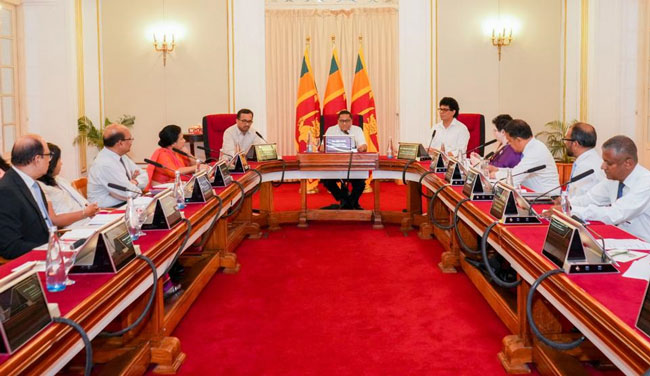September 18, Colombo (LNW): In a bid to energise the nation’s economic diplomacy and strengthen global trade ties, Sri Lanka has unveiled a new inter-agency coordination framework designed to align its foreign missions with national trade, investment, and industrial objectives.
The initiative was formally launched by Foreign Affairs Minister Vijitha Herath, alongside Industry Minister Sunil Handunneththi and Trade Minister Wasantha Samarasinghe. Senior ministry officials, secretaries, and heads of key agencies participated in the strategic session held on September 16, which brought together all of Sri Lanka’s Heads of Mission and Post from around the world.
The gathering served as a platform to exchange key policy priorities and generate actionable proposals aimed at improving Sri Lanka’s international economic engagement. According to the Ministry of Foreign Affairs, Foreign Employment and Tourism, the session marked a decisive shift towards a more integrated, mission-driven approach to advancing the country’s economic agenda abroad.
Opening the session, Foreign Secretary Aruni Ranaraja provided a comprehensive overview of Sri Lanka’s current export and investment climate. She stressed the importance of diversification and the urgent need to move beyond traditional export sectors, urging missions to adopt strategic targeting to attract high-quality foreign investment.
She noted that coordinated inter-agency efforts—both at home and abroad—are essential to building economic resilience, especially as Sri Lanka works to stabilise and reposition itself in the global market.
Foreign Minister Vijitha Herath underscored the critical role of Sri Lanka’s diplomatic network in the post-crisis recovery phase, highlighting that embassies and consulates are now expected to serve not only as diplomatic outposts but also as active facilitators of trade and investment.
“Our Heads of Mission must now be economic ambassadors—proactive in identifying growth opportunities, cultivating investor confidence, and promoting Sri Lanka as a competitive export hub,” he said. He further added that accountability mechanisms would be put in place to monitor progress and ensure that each mission contributes meaningfully to national targets.
Minister Handunneththi addressed the need for revitalising the industrial sector, which remains a key engine of economic growth. He highlighted plans to draw foreign direct investment into key manufacturing zones, particularly in areas where Sri Lanka has natural resource advantages. He also emphasised the importance of moving up the value chain and reducing reliance on raw exports.
From a trade policy standpoint, Minister Samarasinghe warned of the shifting dynamics in global commerce, calling on officials to adopt a future-focused mindset to achieve Sri Lanka’s ambitious export goals for 2030. He emphasised the need for tailored, adaptive strategies to secure long-term trade partnerships and penetrate emerging markets.
Trade Secretary K.A. Vimalenthirarajah reaffirmed the ministry’s commitment to supporting overseas missions in executing these economic mandates, stressing that a united front among all government actors would be essential.
The session also featured detailed presentations from the leadership of the Board of Investment (BoI) and the Export Development Board (EDB), who outlined the country’s medium-term economic goals. These included data-backed projections, export growth benchmarks, and the roadmap for attracting strategic investments over the next five years.
A consensus was reached to translate the proposals into concrete action plans, with regular reviews to track implementation and make course corrections where necessary.
